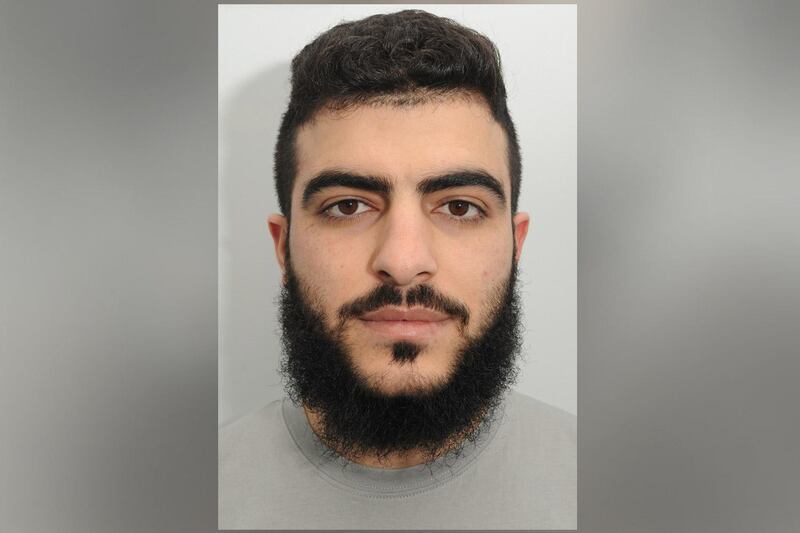A man has been convicted of planning a terror attack using a remote-controlled car filled with explosives in the UK.
Counter-terrorism police foiled the plot and caught Farhad Salah in the early stages of testing a vehicle using an explosive device when they raided his home.
He was caught with extremist material, which included films of murder and torture.
Salah, 24, was arrested by police at his home in Sheffield, England, in 2017.
On Friday a jury at Sheffield Crown Court found him guilty of preparing acts of terrorism following a six week trial.
A second man, chip shop owner Andy Star, 32, of Chesterfield, was also arrested but the jury failed to reach a verdict in his case.
Counter Terrorism Policing North East said Salah's arrest resulted in the early disruption of attack planning, before a target could be identified.
Anne Whyte QC, prosecuting, had previously told the court: "The prosecution allege that he had decided that improvised explosive devices could be made and used in a way here in the UK that spared their own lives preferably but harmed others they considered to be infidels."
The court was read a message sent by Salah in December 2017, in which he told a contact: "My only attempt is to find a way to carry out martyrdom operation with cars without driver, everything is perfect only the programme is left."
After the pair were arrested three air rifles, two Samurai swords, a wine bottle full of sulphuric acid, homemade fireworks, and "a variety of improvised homemade fuses" were discovered at Mr Star's property.
The court heard how officers investigating Salah's home discovered gunpowder and a "viable pyrotechnic fuse".
The investigation uncovered extensive evidence that Salah possessed an extremist ideology.
He was found in possession of a wide range of extremist material, including ISIS propaganda films.
Detective Chief Superintendent Martin Snowden, Head of Counter Terrorism Policing North East, said: “During the course of this case Salah has been inconsistent in his explanation of the evidence.
"He tried to defend his possession of extremist material and the content of his online communications, claiming his account was hacked and he was merely curious about the ideology of ISIS.
“Today the jury saw through these justifications and agreed that Salah was in fact a dangerous individual, who was preparing for acts that may have resulted in loss of life.
“Salah clearly had an extremist mind set and communication from him indicates that he saw his situation as critical. He claimed he was a terrorist, who would be judged by God.
“While our investigation did not establish the target of a potential attack, Salah posed a very real risk to the safety of our communities. We’re grateful we were able to disrupt his plans before he’d identified an opportunity to see them through.”
Officers said Salah had expressed a desire to fight in ISIS occupied territory and was frustrated that he was unable to travel as a result of his unsettled immigration status - leading to him exploring alternative ways to support ISIS.
Salah and Mr Star, both of whom are originally from Iraq, first went on trial in October last year, but the jury was discharged after failing to reach a verdict.
Ms Whyte QC told the court that Mr Star will not face a second retrial and Judge Paul Watson QC directed a not guilty verdict to be recorded in his case.
He added Mr Star could go free but was informed that he will continue to be detained on immigration matters.
Salah had arrived in the UK in 2014, but had not had his asylum claim determined prior to his arrest.
He will be sentenced on July 24.







